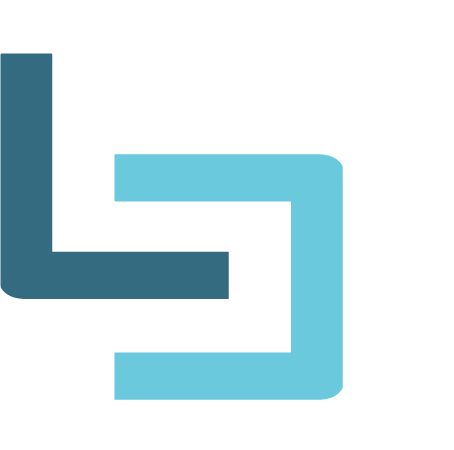
What is a Personal Loan?
A borrower can take out a personal loan for any purpose. The vast majority of personal loans, like any other loan type, are unsecured and paid back monthly. Personal loans typically have lower interest rates than credit cards, and in the right circumstances, can be extremely beneficial for Canadian borrowers.
When to Choose a Personal Loan
Finding the type of personal loan, with the right interest rate and payback period, that meets your needs can be tricky. Not to mention, if there are loans specifically for things such as home or car purchases, why bother with a personal loan in the first place? Though there exists a variety of loans for specific purposes, there are many instances where a personal loan may be the only answer. When there isn’t a loan option available for your specific needs, it’s probably time to start considering a personal loan.
Weighing Options and Interest Rates
Like any other financial decision, picking the right loan, with the right interest rates and payment options, is crucial to your financial well-being. When looking for a loan, be sure that the interest rate is fair based on your credit score. Many lenders may offer loans, but these loans may be designed for individuals with bad credit. It is important to do your research and weigh as many options against one another as possible. For example, using a search engine for loans like LoanConnect will allow you to quickly go through the options available to you and allow you to pick the best one.
Unsecured Vs. Secured Personal Loans
Unsecured personal loans account for the vast majority of loans in Canada. An unsecured loan is when the borrower takes the loan out without securing it against any form of personal asset. Unsecured loans usually have higher interest rates, but if the borrower has a reasonably healthy credit score, an unsecured loan is the best route to take. Secured loans are secured against personal assets such as your car or home, which act as collateral against the loan.
Advantages and Disadvantages of Personal Loans in Canada
Personal loans have a variety of advantages associated with them that can make them preferable to other types of lending solutions. In order to best gauge the advantages of a personal loan, check out the list below:
- Typically have lower interest rates than a credit card and lines of credit
- Used for almost any type of lending need, including renovations, weddings, vehicle purchases, medical needs and more
- Offered by virtually every type of lender and can be quickly taken out with little, to no hassle
- Offer an easy month to month payment schedule, usually over a term of 2 to 5 years in length
Though personal loans have a variety of advantages, there are certainly some disadvantages you should be privy to. If you would like to know about the disadvantages of Canadian personal loans, check out this list:
- Usually have higher interest rates than other types of loans
- A reasonable interest rate usually require a healthy credit score and you may be limited in your options if you have a bad credit score
- Often times have hefty administrative fees
- Usually capped at $30,000, and if you require more, you might have difficulties securing the full amount.
What Can I Use a Personal Loan For?
Personal loans have a wide variety of applications. You can use a personal loan for just about anything. Whether you need to pay off credit cards, need a loan for your education, or to renovate your home, a personal loan can do the trick in just about any circumstance. Personal loans provide you with the flexibility you need to spend the money you receive from lenders, without restrictions.
How Do Personal Loans Differ From Other Types of Loans?
As mentioned before, personal loans do not have nearly as many restrictions as other types of loans on the market. Personal loans vary both in how the money is disbursed, as well as how the money is allowed to be spent. For example, a mortgage can only be used to pay for a house, student loans can only be used for school-related costs and car loans have to be spend on the purchase of a vehicle. Personal loans however, can be spent on virtually anything and are disbursed directly to the borrower, as opposed to a mortgage where the money is not actually delivered to the borrower.
Fixed Rates Vs. Variable Rates
Most personal loans are based on a fixed interest rate, however, there are times when you may have the option of choosing a variable interest rate. A fixed interest rate is an interest rate that stays the same throughout the duration of your loan repayment. The prime rate directly influences the fluctuation of the variable interest rate. The prime rate is based on how much it costs the bank and other institutions to borrow money. If the rate goes up, you pay more in interest, if it goes down, you pay less. Both have their advantages and disadvantages.
A fixed interest rate can be lower or higher than a variable interest rate. It is ideal because you always know what you are paying, and do not risk the rate going up due to fluctuations in the prime interest rate. Its disadvantage is that you may be paying more when the prime rate falls. When the prime rate is falling, a variable interest rate is the better option. However, the prime rate is influence by many different factors and is very difficult to predict when it will rise and fall over time. Most financial experts recommend variable rate loans be limited to durations of one year or less.
The Process and Disbursement of Funds
As mentioned above, personal loans are disbursed directly to the account of the individual who is seeking the loan. Compared to the other loan types, the disbursement of funds is relatively quick, and you can expect to get your money within 1 to 3 days. You will need to fill out personal information on an application that can be verified for the loan. Pre-approval may help to expedite the process when appropriate. Pre-approval can be completed in as little as 60 seconds when you complete your application with LoanConnect.
Personal Loans and Installments
If you have been browsing the internet to find out more about personal loans in Canada, you may have come across the term “installment”. The term installment, unfortunately, at times, can confuse potential borrowers. Installments are fixed amounts that have to be paid by the borrower on a periodic basis and should not be confused with traditional monthly payments. For personal loans, this is normally monthly. However, be sure not to confuse this with a minimum monthly payment. Though the installment is the minimum amount you must pay, it is not a minimum payment. Many times you cannot pay more than the installment without penalties. Paying your installments guarantees you will have paid off the loan over the agreed upon term length.
Personal Loans and Bad Credit
If you are looking for a personal loan, and have bad credit, your options may be very limited. The majority of banks and larger financial lenders design their loan programs and give preference to individuals with a good credit score. As the vast majority of personal loans are unsecured, lenders must protect their interests by loaning out to Canadians with strong credit. However, if you have bad credit, not all hope is lost.
Many private lenders in Canada are willing and ready to offer unsecured personal loans to individuals with bad credit. If you have bad credit, working with a private a lender is probably your only option. You still must have a credit score above 550, and you should expect to pay a significantly higher interest rate. If you have bad credit, but ample cash flow to pay your installments, getting a personal loan from a private lender is a viable option. You can use LoanConnect to wade through your options from private lenders to find the right loan for you.
Approval Criteria For Personal Loans in Canada
Approval criteria for personal loans will vary by bank, lender and institution. However, there is some common criteria and guidelines. For larger lenders, you normally have to have a credit score above 650 and have a healthy debt to income ratio. Your bankruptcy score must also indicate that you are not in any danger of going bankrupt and defaulting on your payments. Loans with the best interest rates are reserved for Canadians with credit scores of 740 and above. For private lenders, you will have to have a credit score of at least 550, but likely need a credit score of higher than 600 to receive a personal loan that is beneficial for you and your borrowing needs.
Do Personal Loans Show On Credit Reports?
Yes, personal loans, like most other types of debt will appear on your credit report. When you apply for any other form of debt, lenders will be able to see how much you still currently owe on your personal loan, whether or not you have been making payments and if you are still in good standing with the creditor.
Do Personal Loans Help or Hurt Your Credit?
Depending on the situation, a personal loan can both help or hurt your credit score. When you apply for a loan or take a loan out, it has the potential to lower your credit score in the immediate short-term. However, if it does lower your credit score, it is usually to a small extent and you should not be concerned by it. Making your installment payments and eventually paying off your loan will help your credit score in the long-term.
Do Personal Loans Require Collateral?
For the most part, no. Personal loans are normally, if not always, unsecured forms of debt, meaning that no collateral is required. When you take out a personal loan, you will typically not have to worry about creditors having a legal claim against your assets or home. However, if you default on the loan, lenders can take you to court and could possibly have your wages garnished until you have paid off the loan in its entirety.
Does a Personal Loan Help You Build Credit?
Yes. If you have bad credit, taking out a personal loan can potentially help you build your credit over time. Any form of debt where you make periodic payments on time and without incident, will help you build your credit over time. Be sure that the lender you choose reports your payments to the credit reporting agencies (Equifax and TransUnion in Canada), as not all private lenders will report your payment history.
If I Pass Away, Does my Personal Loan Debt Disappear?
No. Personal loan debt does not disappear if you pass away. Lenders maintain the right to collect what is owed. Typically, this amount is easily taken care of by the assets left behind. If assets are not enough to pay off the remaining debt, the debt can’t pass onto children or other relatives.
Will a Personal Loan Affect my Mortgage Application?
To an extent, yes. Having personal loan debt technically will impact how mortgage lenders view your application. However, you should not let this discourage you. Any form of debt will be reflected in your debt to income ratio, which is a metric most mortgage lenders take into account. However, the impact will be fairly minimal. As most personal loans are below $10,000, the small amount of debt will not make any difference in whether or not you are approved for a mortgage. You should not be concerned about taking out a personal loan and its potential impact on a mortgage application.
Do Personal Loans Impact My Taxes?
No, personal loans should not impact your taxes at all. Personal loans are not viewed as any form of income. Paying interest on your loans is also not deductible, and therefore, is not part of any form of the tax return.
How Long Does a Personal Loan Take to Get?
It depends on how you are applying for the personal loan. If you are applying at a major bank, the approval process can take anywhere between 2 to 4 business days, and then to disburse the money to your account can take up to another 5 business days. If you apply for a personal loan online, it tends to be quicker. The approval process usually takes a few hours from the lender’s side, and then the money can be disbursed to your account in as little as 24 hours from the time of your application date.
What Should I do if I am Denied a Personal Loan?
If you are denied a personal loan, the first thing to do is to understand why you were denied. Were you denied because of poor credit, or was it because your income was not high enough? If it was because of poor credit, you may have to take steps to rebuild credit. You may want to consider a savings loan or debt management program which will you help fix your credit in the long-term.
When I Apply for a Personal Loan do Lenders Check my Income?
In some cases, yes, lenders will require that you provide proof of income. However, many times, more often than not, lenders can gauge your income level by checking your credit history to see if you have had any difficulties paying debts in the past. If you have a poor credit history or no credit history at all, lenders will probably ask you to provide them with proof of income before approving your loan application.



